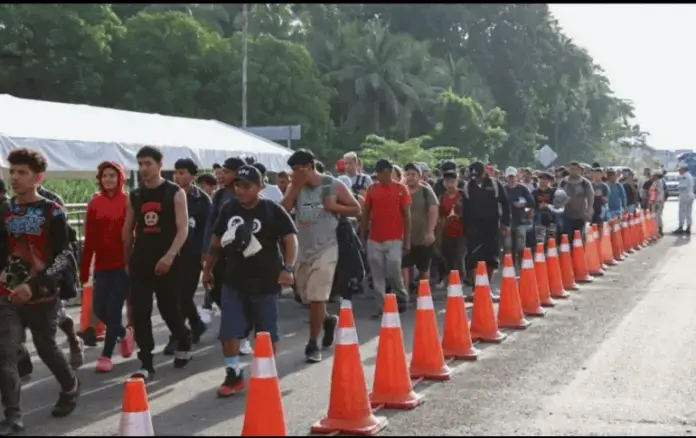Two weeks have passed since Donald Trump assumed his second term in the United States, and one of the main areas of focus remains the deportation of Latino migrants, both due to the numbers and the methodology used in the expulsion process. According to Trump himself, the number of deportees could reach historic figures throughout his administration.
For now, deportation statistics remain stable, similar to recent months under the administration of Joe Biden. This trend is reflected in the data released by the government of Mexico, the country with the largest number of migrants in the US. In addition, Mexico has received deportees not only from the United States, but also from countries such as Venezuela, Nicaragua, Haiti, El Salvador, Cuba, Honduras and Guatemala, although there is still no official information on specific agreements regulating the entry of deportees from these nations.
Options for non-Mexican deportees
Since the beginning of the Trump administration, it was reported that 6,244 migrants were deported to Mexico, of which 1,321 were not Mexican. Although Claudia Sheinbaum’s government has implemented the “Mexico embraces you” program, aimed at providing support to deportees, this benefit is only available to migrants of Mexican nationality. As for deportees from other countries, they do not receive assistance unless it is a medical emergency.
This situation is not something new. According to Mexican political scientist Stephanie Henaro, “this also happened during the first Trump administration, and the problem lies in the chain deportations. They arrive in Mexico, they are sent to another country and there, if they are not nationals of that place, the process is repeated.” Henaro points out that this phenomenon can have a negative impact in the long term, promoting “more racism and nationalism.” In addition, he warns that Mexico is not prepared, neither economically nor culturally, to face this situation.
READ: Donald Trump wants to increase the pace of deportations in the US
For his part, Ariel Ruiz, political analyst at the Migration Policy Institute (MPI), explains that the Mexican government does not consider it has the obligation to reintegrate non-Mexican migrants. According to Ruiz, deportees have three options: the first is to request refuge in Mexico, which allows them to obtain legal status and the possibility of working, although the process can be long and expensive. The second option is to voluntarily return to their country of origin, with the corresponding assistance. Finally, the third option, which has been common in the last year, is the transfer of deportees to the southern border of Mexico, where they can request refuge or decide to leave the country.
The practice of transferring non-Mexican deportees
The transfer of non-Mexican migrants from the northern border to the southern border of Mexico is a practice that has been maintained during several administrations, including those of Trump and Biden. According to Ruiz, a migrant who is sent to states in southern Mexico, such as Chiapas, could try to return to the border with the United States and cross irregularly. However, with Trump’s more aggressive policy, this option has become more difficult, as the consequences for those who are detained again can be more severe.
The situation of deported migrants remains a challenge for Mexico and the countries involved. While the Mexican government is not obliged to assume the reintegration of non-Mexican migrants, the alternatives offered seem to be insufficient and, in some cases, not very viable. Lizbeth Guerrero concludes that, although it is logical for a country to take care of its own nationals, migrants of other nationalities cannot be forgotten, who also need support and options to return home safely.

Source: informador




